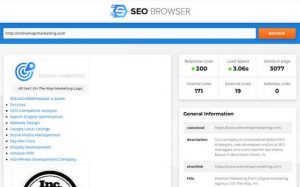To say that the United States is polarized at the end of this most recent political season would be an understatement. In fact, Republicans and Democrats haven’t been this ideologically divided in more than two decades. The massive swing in government policies, which will begin to roll-out when President-Elect Trump takes office in January, will lead to an unpredictable economy, stock market and currency market.
The silver-lining, for e-commerce businesses, is that international exposure to geographically diverse markets can make it easier to weather unpredictable economic conditions in the United States. If the worst-case scenario plays out, and the US economy enters a downturn that impacts consumer confidence and damages the US dollar, international markets will offer a cushion. Although admittedly, this cushion would be dampened by economic trouble in the world’s largest national economy.
Add the Option to Shop in Different Currencies to Engage International Clients
In preparation for what many experts are predicting will be a turbulent year domestically, now is a great time to offer shoppers the ability to purchase products in their native currency. Nobody enjoys reaching for a currency calculator, and then paying currency conversion fees in addition to the purchase price and taxes for an item.
Online payment processing companies, like PayPal and Shopify, provide systems that can be easily implemented into a site without too much coding and customization. This is perfect for e-commerce sites that sell products to other business; the average b2b customer has an international team that speaks seven languages. Multi-currency support allows e-commerce sites to cater to the needs of a diverse set of decision makers.
Understanding the Currency Conversion Process
E-commerce sites that focus on supporting international currencies need to understand how currencies are converted and traded. When working with international partners, it is usually less expensive to pay for items with the partner’s national currency. And, if you’re able to carry a balance in multiple currencies, strategically moving funds between currencies can be a lucrative way to increase profit margins.
Of course, there is risk in converting between currencies; currency markets change dramatically from day to day as current events impact markets. But, I’ve found in our business that holding funds in multiple currencies provides us greater flexibility and the opportunity to pad our profits.
Create Shipping Centers or Drop-Ship Partnerships Overseas
The other major boundary to supporting customers in different countries and different continents is shipping costs. Customers shop online for many reasons, one of them being price competitiveness. If your item is cheaper, but requires expensive international shipping charges, you’re going to lose the sale to a more expensive local supplier.
To compete on a global scale, it’s critical that your e-commerce business establishes partnerships with local warehouses and drop-ship chains to fulfill overseas orders. This negates the international shipping fees, and hefty import / export charges.
Digital Delivery Products Will Fare the Best
The absolute easiest way to target international buyers is to offer a well-stocked catalogue of items that are delivered digitally, via download. My company did this by partnering with a licensing firm that generated secure, one-time use keycodes that would unlock a downloadable product. Pirating (the practice of disabling the paywall in downloaded products and distributing them freely via file-sharing sites) is a serious concern. Robust counter-measures are critical.
The developers of the products that you sell in your digital catalogue will offer robust counter-piracy measures. Coordinating with the developers will allow you to take full advantage of their expertise. After all, it’s in their best interest to limit the opportunity for their work to be pirated or stolen.
Google Local Search Becomes Increasingly Important for International E-Commerce Efforts
Targeting the market in your home country makes sense for individuals on a limited start-up budget. But, as an e-commerce company grows and expands, it becomes increasingly important to identify the international markets that offer the best opportunity for making international sales.
In my company, we found that Google Local was our best tool for targeting geographic regions with our products and services. Google Local search is a segment of Google’s search algorithm that is dedicated to serving up results based on the geographic location of the individual that is searching for an item, or answer to a question. For example, if I’m located in the UK, Google will prefer to show me results that are geographically relevant to me, before serving up sites from the US or Asia.
To tackle this opportunity, you’ll need to use a keyword explorer to identify popular keywords used by people in specific regions. For example, as an online seller of apparel, the keyword “cheap socks in London” might be a good keyword to research. Do you think the individual typing this into Google would be willing to order socks online? It’s possible that price is their primary motivator, so a bulk discount on socks could sway them to shop online, instead of visiting a local store.
Google’s Keyword Planner is an excellent, free resource for discovering keyword opportunities. Type in a few phrases that you think a customer would type into Google, and you’ll be able to see the competitiveness for that keyword, as well as the average search volume. In addition, Google will recommend additional, related keywords that can help you brainstorm new strings.
Local Search, International Partnerships and Multi-Currency Support are Key to International E-Commerce Success
Targeted landing pages, built to serve customers in different, targeted geographic locations will help ensure your site shows up in international markets. When the customer visits your site, listing your products in the native currency of the visitor will help ensure the customer can easily assess competitive pricing. And, by working with local providers and suppliers, you can minimize shipping and import/export fees. Plus, as an added bonus, international currency can be traded to improve profitability, based on market activity.
Digital & Social Articles on Business 2 Community(40)






